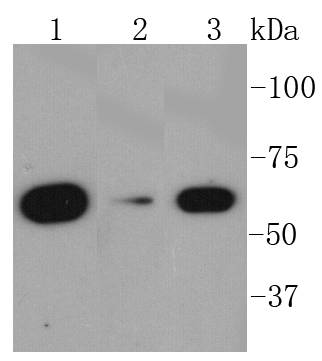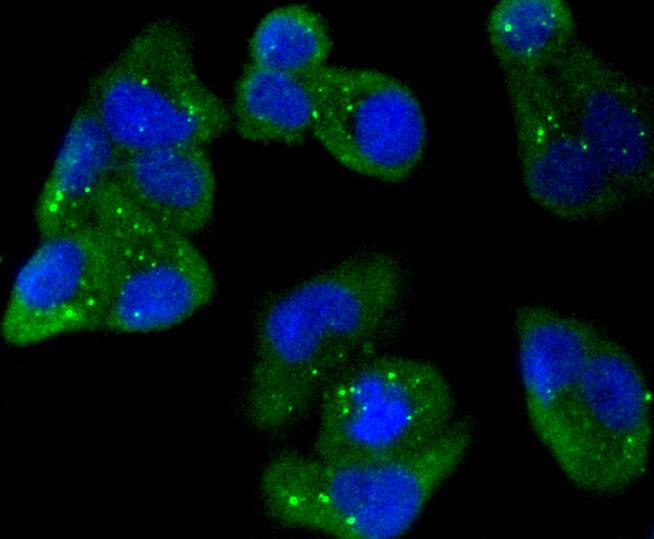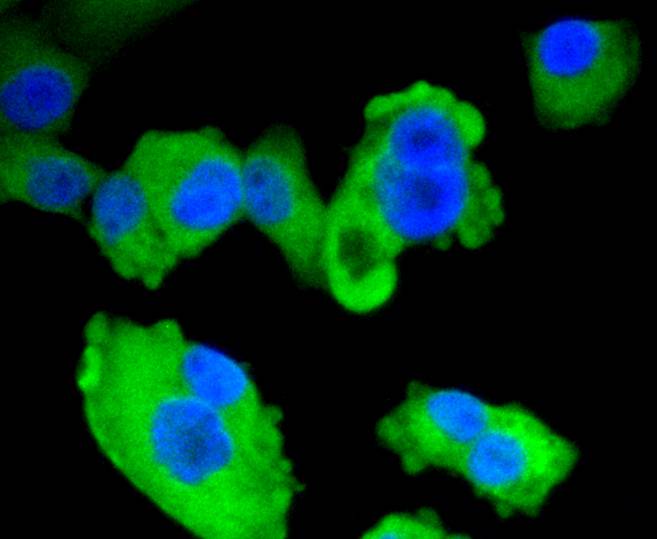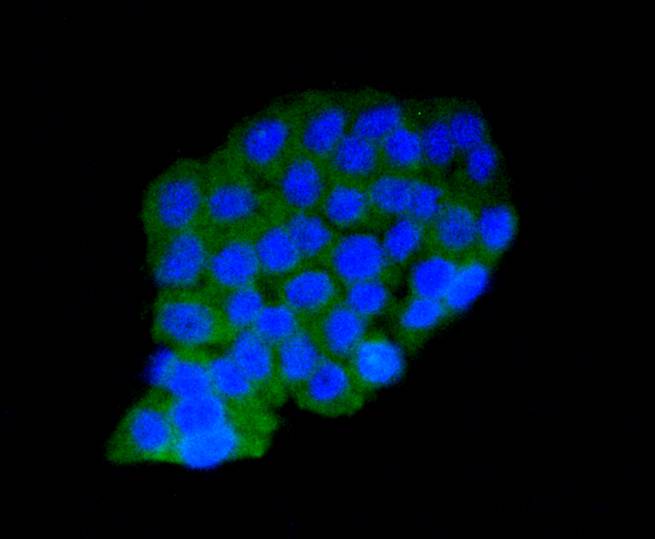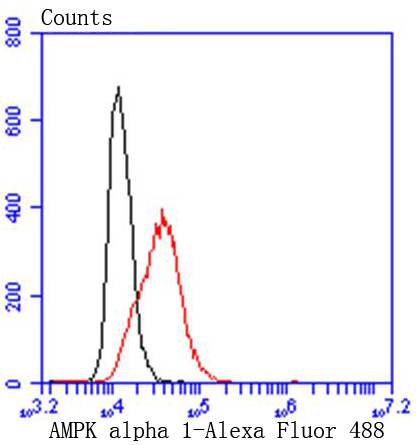AMPK (for 5'-AMP-activated protein kinase) is a heterotrimeric complex com-prising a catalytic α subunit and regulatory β and γ subunits. It protects cells from stresses that cause ATP depletion by switching off ATP-consuming bio-synthetic pathways. AMPK is activated by high AMP and low ATP through a mechanism involving allosteric regulation, promotion of phosphorylation by an upstream protein kinase known as AMPK kinase, and inhibition of dephosphorylation. Activated AMPK can phosphorylate and regulate in vivo hydroxy-methylglutaryl-CoA reductase and acetyl-CoA carboxylase, which are key regulatory enzymes of sterol synthesis and fatty acid synthesis, respectively. The human AMPKα1 and AMPKα2 genes encode 548 amino acid and 552 amino acid proteins, respectively. Human AMPKβ1 encodes a 271 amino acid protein and human AMPKβ2 encodes a 272 amino acid protein. The human AMPKγ1 gene encodes a 331 amino acid protein. Human AMPKγ2 and AMPKγ3, which are 569 and 492 amino acid proteins, respectively, contain unique N-terminal domains and may participate directly in the binding of AMP within the AMPK complex.

